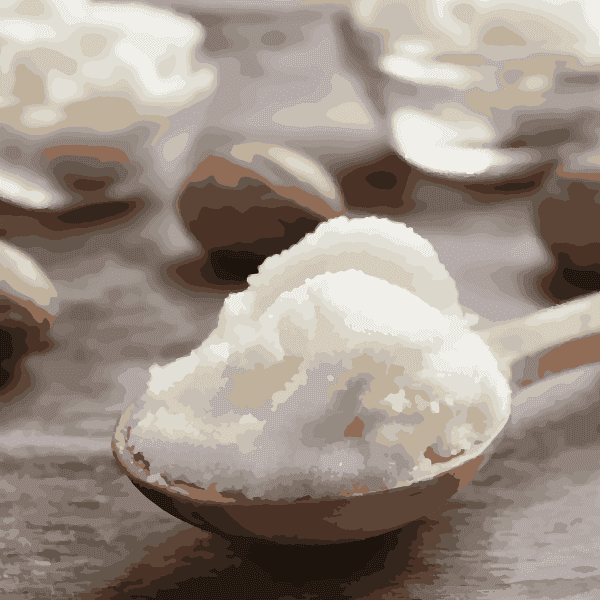
Shea Butter {Organic}
Shea butter comes from the fat that is derived from the nuts of the shea tree (Vitellaria paradoxa). It is native to Western Africa and is often used in skincare and hair products. Shea butter is effective but gentle enough for the most sensitive skin. It has nourishing fatty acids and vitamins A and E.
You might need Shea Butter if . . .
- You have delicate skin.
- You have dry skin that has also become raw.
- You want healthier skin.
- Your skin looks puffy.
- You want more luxurious, healthy hair.
Benefits of Shea Butter
- It is used on the most delicate skin, including babies.
- Shea butter has antibacterial properties, allowing it to help support skin health with minor abrasions.
- It is high in fatty acids and vitamins E and A. This leaves your skin hydrated and allows it to absorb more nutrients for self-repair.
- It has anti-inflammatory properties.
- The fatty acids help make your hair healthier and give it a natural shine without being oily.
Common ways to use Shea Butter
It is often used in skin care but sometimes in the herbal world in salves, lotions and balms. Shea can be mixed in with other ingredients or used by itself.
How it is Made
Shea butter comes from the shea tree, which is found in Africa. A shea tree takes about 20 years to mature enough to become fruitful. However, it can continue to bear fruit for up to 200 years. Shea trees are so important to the economy in Africa that the government enforces laws protecting them.
The nut from the tree is then boiled, cracked, and extracted. Once they are extracted, they are ground into a powder and roasted. Once roasted, it is then boiled. The oil from the shea nut rises to the top. Once it cools, it solidifies in the water and can be removed. The entire process can take 4-7 days. Often, the art of making shea butter is passed down from generation to generation of women in Africa. While most people in the village know how to make the shea butter, the women typically do it. It is often up to 60% of their income.
The consistency of the shea butter will often be different from batch to batch due to the fatty acid content of the fruit. This cannot be controlled. Refined shea butter can range in texture from hard and brittle to soft. This happens because the oleic acid content is higher or lower than the overall fatty acid content.
Safety Concerns
As a tree nut, there is a chance that someone could have an allergy to shea butter.
Drug Interaction: If you have any health concerns or are taking any prescription medication, please consult with your healthcare provider before adding new herbs to your diet.
Breastfeeding and Pregnancy: There are no known contraindications for breastfeeding and pregnancy.
Other Concerns: When using pure shea butter there are virtually no concerns.
Select Studies About Shea Butter
Shea is very high in vitamin C, and shea butter is extremely high in fatty acids.
Shea butter has anti-inflammatory properties on a molecular level and has been used traditionally as an anti-inflammatory in Africa.